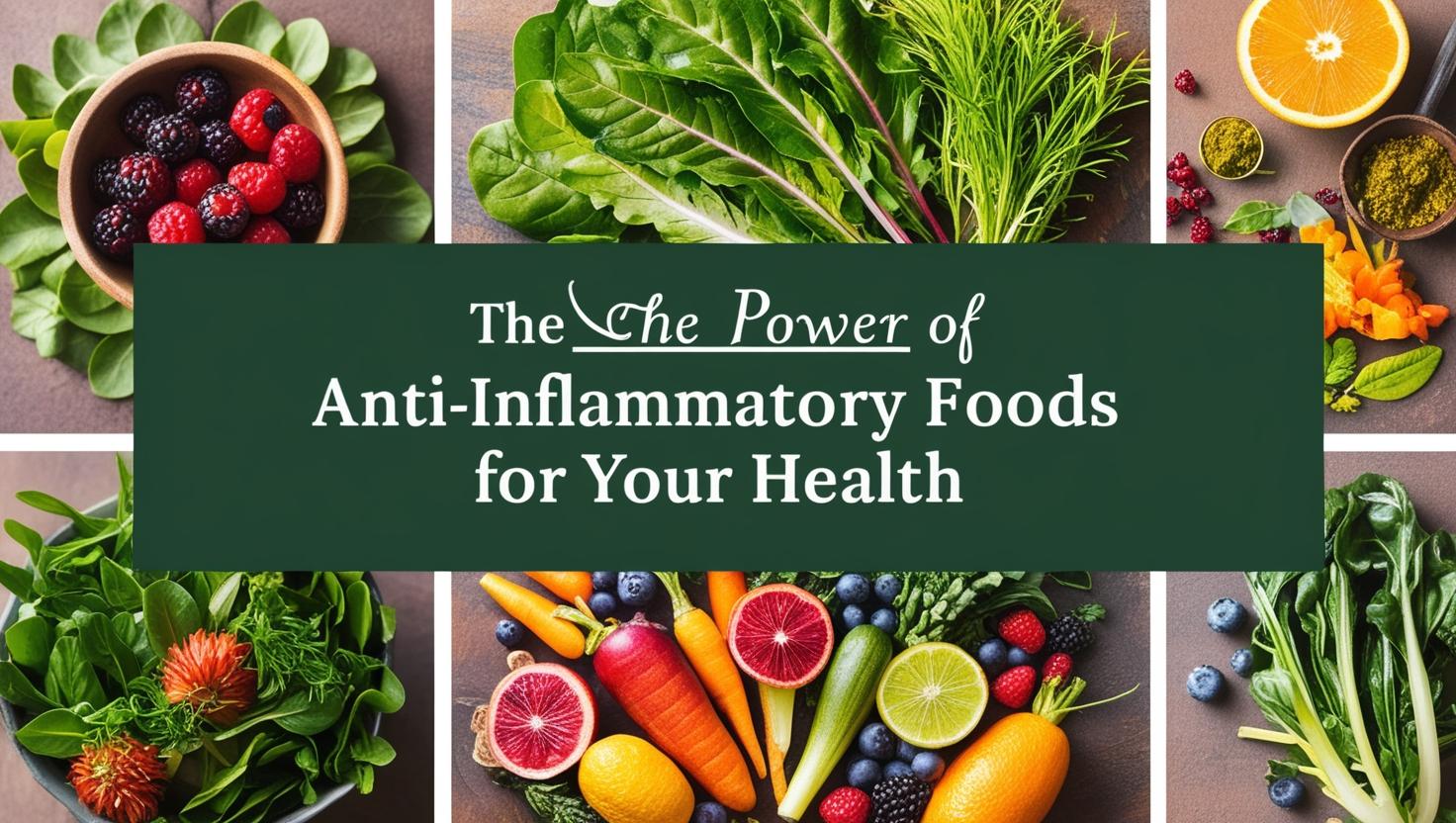Introduction
Inflammation is a natural response of the body to injury or infection, but when it becomes chronic, it can lead to serious health problems. Studies suggest that prolonged inflammation is linked to diseases such as arthritis, diabetes, heart disease, and even cancer. The good news is that your diet can play a crucial role in managing inflammation. Consuming the right anti-inflammatory foods can help protect your body, improve overall well-being, and prevent chronic illnesses.
Many people rely on medications to manage inflammation, but a natural approach can be just as effective, if not more. Incorporating anti-inflammatory foods into your daily diet is a simple yet powerful strategy for enhancing your health. In this guide, we will explore the best foods to reduce inflammation, how they work, and practical tips to include them in your meals effortlessly.
What Is Inflammation and Why Should You Care?
Inflammation is the body’s defense mechanism against harmful stimuli like infections, toxins, or injuries. While acute inflammation helps in healing, chronic inflammation can damage tissues and lead to severe health conditions. Factors such as poor diet, stress, lack of exercise, and exposure to environmental toxins can contribute to long-term inflammation.
Understanding the connection between diet and inflammation can empower you to make smarter food choices and promote long-term wellness. By adding more anti-inflammatory foods to your meals, you can help your body maintain balance and prevent disease progression.
Top Anti-Inflammatory Foods to Include in Your Diet
1. Fatty Fish: A Source of Omega-3s
Fatty fish such as salmon, mackerel, and sardines are rich in omega-3 fatty acids, which are known to combat inflammation effectively. These essential fats help reduce levels of pro-inflammatory markers and protect against heart disease and joint problems.
How to Include in Your Diet:
- Enjoy grilled salmon with vegetables for dinner.
- Add canned sardines to your salads or whole-grain toast.
- Include fish in your meal plan at least twice a week.
2. Leafy Greens: Packed with Antioxidants
Spinach, kale, and Swiss chard are loaded with antioxidants, vitamins, and minerals that help fight inflammation. Their high fiber content also supports gut health, which plays a crucial role in reducing inflammatory responses in the body.
How to Include in Your Diet:
- Blend leafy greens into smoothies.
- Sauté kale with garlic for a delicious side dish.
- Add fresh spinach to sandwiches and wraps.
3. Berries: Nature’s Anti-Inflammatory Powerhouses
Berries such as blueberries, strawberries, and raspberries contain anthocyanins, compounds that reduce inflammation and lower the risk of chronic diseases. These fruits are also packed with vitamin C and fiber, making them an excellent choice for overall health.
How to Include in Your Diet:
- Mix berries into yogurt or oatmeal for breakfast.
- Snack on a handful of fresh or frozen berries.
- Use them as a natural sweetener in desserts.
4. Nuts and Seeds: Healthy Fats and Fiber
Almonds, walnuts, flaxseeds, and chia seeds are rich in healthy fats, protein, and fiber, which help regulate inflammation. Nuts and seeds are also excellent sources of magnesium, a mineral that supports the immune system.
How to Include in Your Diet:
- Sprinkle chia or flaxseeds on smoothies and yogurt.
- Snack on a handful of almonds or walnuts.
- Use ground flaxseeds in baking recipes.
5. Turmeric: A Potent Natural Anti-Inflammatory
Turmeric contains curcumin, a powerful compound with strong anti-inflammatory effects. Research has shown that curcumin can reduce inflammation at the molecular level, similar to some pharmaceutical drugs but without harmful side effects.
How to Include in Your Diet:
- Add turmeric to soups, stews, and curries.
- Mix turmeric with warm milk for a soothing drink.
- Take curcumin supplements for higher doses.
Foods That Increase Inflammation to Avoid
While incorporating anti-inflammatory foods is essential, it’s equally important to limit foods that trigger inflammation. These include:
- Refined carbohydrates (white bread, pastries, sugary cereals)
- Processed meats (bacon, hot dogs, sausages)
- Sugary beverages (sodas, energy drinks, sweetened coffee drinks)
- Fried foods (French fries, potato chips, fried chicken)
- Trans fats (found in margarine, processed snacks, and fast food)
Reducing these pro-inflammatory foods will help your body function optimally and support a healthier lifestyle.
Practical Tips to Include Anti-Inflammatory Foods in Your Daily Routine
- Start your day with an anti-inflammatory smoothie with berries, spinach, and chia seeds.
- Replace refined grains with whole grains like quinoa, brown rice, and whole wheat.
- Use healthy cooking oils such as olive oil or avocado oil instead of processed vegetable oils.
- Drink green tea or herbal teas instead of sugary drinks to reduce inflammation naturally.
- Plan meals in advance to ensure you always have healthy, anti-inflammatory options available.
Conclusion
Embracing a diet rich in anti-inflammatory foods is a natural and effective way to enhance your overall health and prevent chronic diseases. By making simple yet impactful changes in your diet, you can reduce inflammation, boost immunity, and improve your energy levels.
Start incorporating these nutrient-dense foods into your meals today and experience the long-term benefits. Your health is in your hands—why not fuel your body with the right foods and take control of your well-being?
